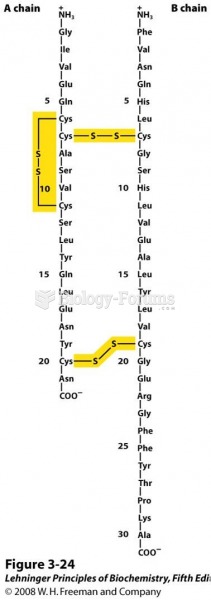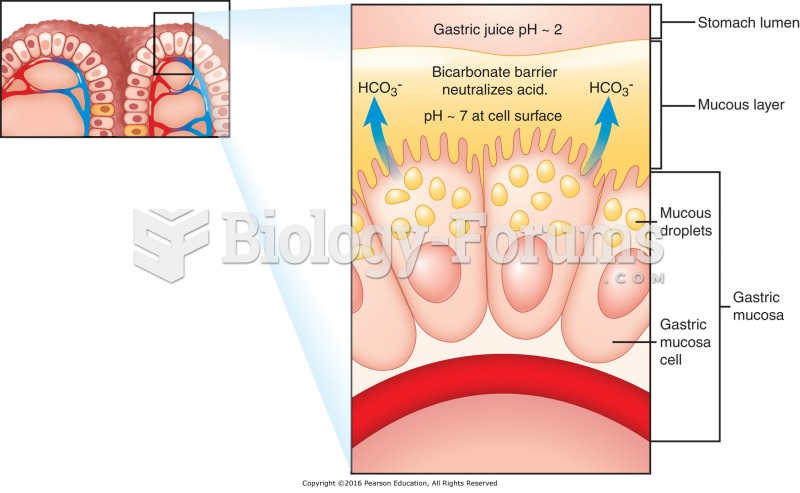|
|
|
People with high total cholesterol have about two times the risk for heart disease as people with ideal levels.
Asthma cases in Americans are about 75% higher today than they were in 1980.
Women are 50% to 75% more likely than men to experience an adverse drug reaction.
Asthma attacks and symptoms usually get started by specific triggers (such as viruses, allergies, gases, and air particles). You should talk to your doctor about these triggers and find ways to avoid or get rid of them.
Before a vaccine is licensed in the USA, the Food and Drug Administration (FDA) reviews it for safety and effectiveness. The CDC then reviews all studies again, as well as the American Academy of Pediatrics and the American Academy of Family Physicians. Every lot of vaccine is tested before administration to the public, and the FDA regularly inspects vaccine manufacturers' facilities.







